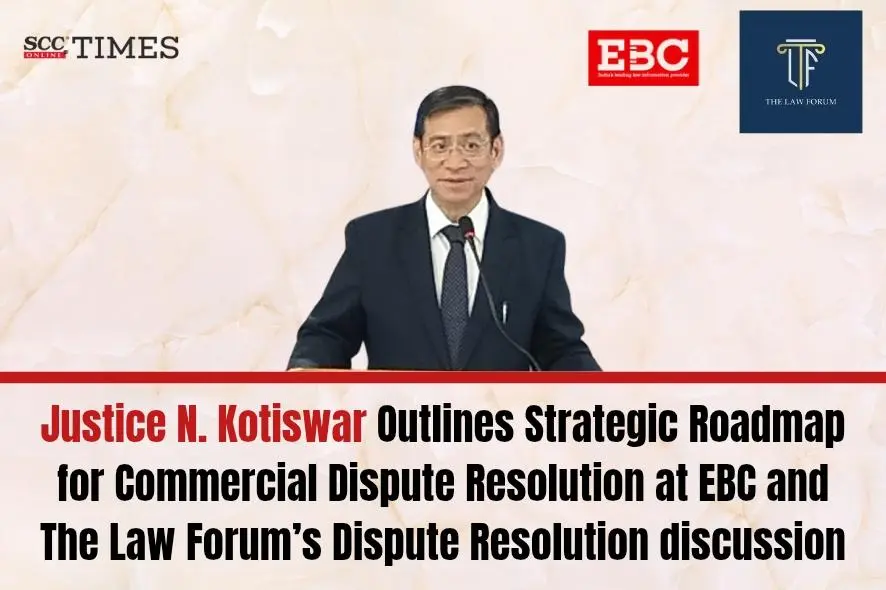At a thought-provoking discussion on “Commercial Disputes Resolution — Challenges and Strategies” hosted by EBC in collaboration with The Law Forum, Justice N. Kotiswar Singh, Judge, Supreme Court of India, delivered the keynote address as Chief Guest. Addressing the audience of legal practitioners, scholars, and stakeholders, he called for a transformative approach to managing commercial disputes with an emphasis on case management, technological readiness, and mediation-led solutions.
Commercial disputes are nothing new. Trade and business have existed since ancient times, and so have disputes around them, – Justice Kotiswar noted, setting the historical context for his address.
India’s Legislative Leap with the 2015 Commercial Courts Act
Justice Kotiswar highlighted the significance of the Commercial Courts Act, 2015, calling it “not a new law in essence, but a legislative attempt to streamline existing procedures” to enhance efficiency, accountability, and global competitiveness.
“This 2015 Act is an option of the general endeavor of India to integrate ourselves with the global economy in a much smoother manner,” he stated.
Call for Robust Case Management and Accountability
Justice Kotiswar underscored the need for strict timelines, adherence to procedure, and judicial discipline. The effective and speedy resolution of commercial disputes lies at the core of our evolving economy, he asserted. He urged legal practitioners to invoke statutory rights for better court and case management.
Earlier, it was left to the discretion of the Judge how to manage his own court. But now it is a statutory right—not only an obligation of the court, but also the right of the parties to insist, he emphasised.
Mediation: The Future of Commercial Dispute Resolution
Justice Kotiswar advocated mandatory pre-litigation mediation, citing its historical roots and growing legal necessity. Commercial dispute mediation would require a specialised knowledge. We must have trained mediators—this is not a skill that can be gathered just by watching proceedings, he said. He proposed the creation of a specialised pool or body of commercial mediators, akin to the architectural bar of India.
“The mediators can’t be just ordinary person who are walking on the street.”
Harnessing Technology for Judicial Delivery
Calling digital competence, a “mandatory requirement” for modern legal professionals, Justice Kotiswar stressed on the extensive use of virtual conferencing, digital evidence, and IT infrastructure. Unless we ourselves are equipped with that knowledge, how do we decide? he asked, urging both Judges and lawyers to undergo regular digital training under Section 20 of the Act.
“The VC should be used to the maximum for examining witnesses who are maybe outside the country”, he asserted.
Infrastructure and Government Responsibility
He reminded the audience of Section 19 of the Act, which places a statutory obligation on the government to ensure proper infrastructure for commercial courts. Here, we have a right… Unlike the amorphous right vis-à-vis other courts, the statute is very clear.
Looking Ahead
Concluding his address, Justice Kotiswar envisioned an eventual integration of the Mediation Act, 2023, Arbitration and Conciliation Act, 1996, and the Commercial Courts Act. They operate in the same domain. We’re going to see more and more interface between these three Acts, he predicted.



